HOW CAN MODERN LIFE CONFLICT WITH CATS’ NATURAL NEEDS?
Modern life for indoor cats can sometimes conflict with their natural needs. This week we will raise awareness on some of these potential stressors so that you can better understand your feline friend and potentially make some changes so that you can make your cat a happier cat.
Space
Many of us cat lovers choose to keep our cats indoors with limited or no access to the outside. This is just the opposite of what cats prefer!
Find ways to stimulate your cat. Create hiding places, utilize vertical space such as raised platforms and or get some cat grass! You could even teach your cat to walk on a leash.

Autonomy
Cats are rather solitary and want to be their own boss. As pets though, cats cannot decide where and when they can find food for example. Especially if they have to live with another cat mate.
Cats in the wild have their own territories that they patrol in solitude. This does not mean they are anti-social but they naturally have different social interactions from dogs or humans. Make slow introductions, ensure your cat has their own privacy, maximize resources (e.g a litter tray per cat) or try a Feliway Diffuser to help promote positive interactions.
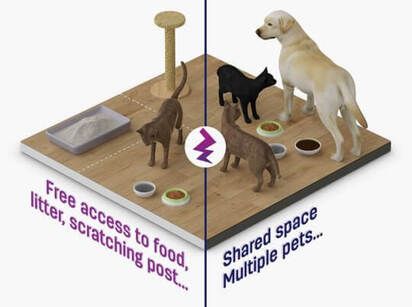
Calm
Cats are calm animals who like routine and don’t like to be surprised. Conversely, our modern lives resonate with variety and loud noises.
Provide your cats with hiding places and quiet spaces in the house. Make sure they know where the "safe" area is so that they can retreat when necessary.
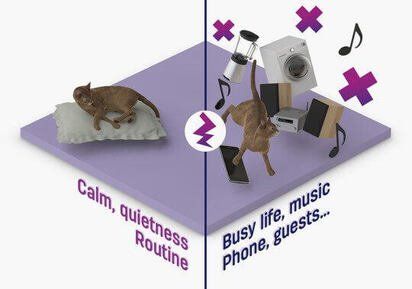
Escape paths
Cats do not like to be constrained. Facing a closed door or window or even another pet or a child in their path represents a challenge for them.
Sometimes obstacles are inevitable, for these moments consider something like Feliway Classic which is a plug in pheromone diffuser. This diffuser releases 'happy messages" to help your cat adjust to some of life's challenges.
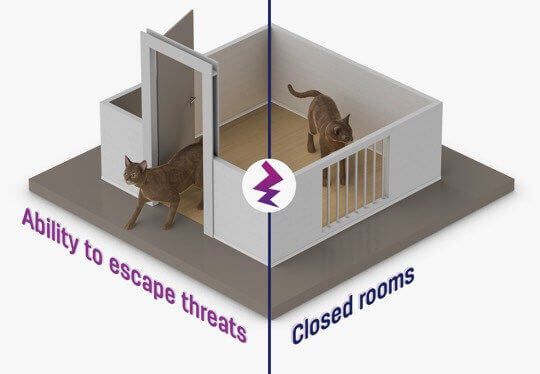
Stability
Cats like stability, especially in their home. On the opposite, most of us enjoy travelling and discovering new locations!
Be proactive about helping your cat adjust to changes in their lifestyle. Make their cat carrier a travelling safe space instead of a device that only appears for car rides and vet visits. Create quite areas in the house if you are renovating or having company. In times of change eg moving, provide calming phermones either in a diffuser or spray to help make the transition less stressful.
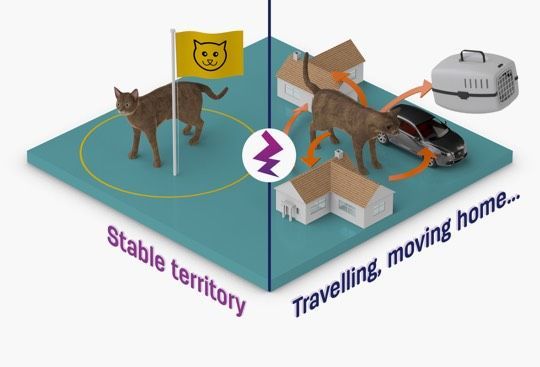
Is your cat happy? Take the quiz https://www.feliway.com/ca_en/Why-Feliway/How-happy-is-your-cat
This post is based on the article from Feliway https://www.feliway.com/ca_en/Why-Feliway/How-your-cat-feels-in-our-modern-life.
Leave a Reply.
SIGN UP TODAY!
We will get back to you as soon as possible.
Please try again later.
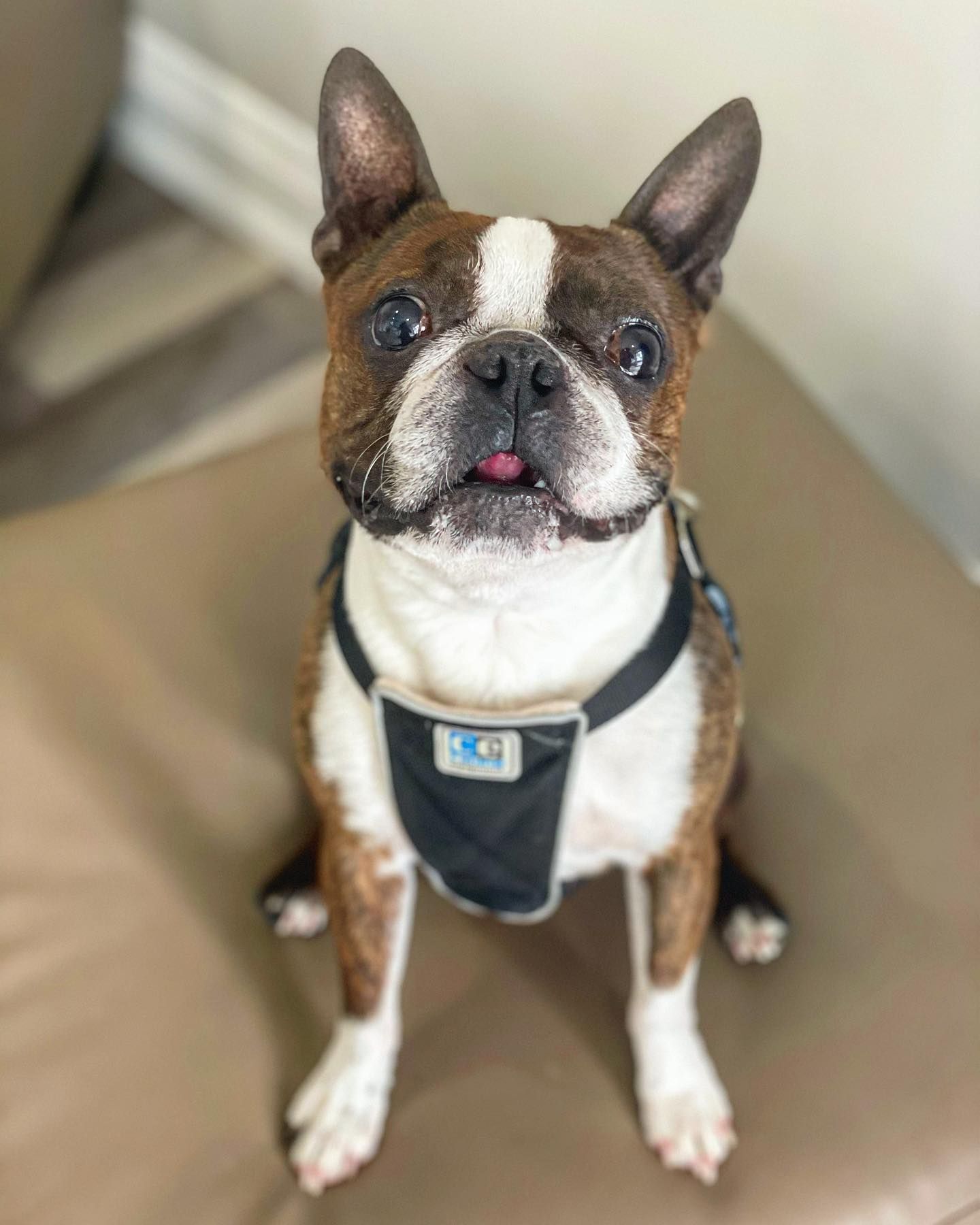

Street Address : 1026 Speers Road
City : Oakville
State / Province : Ontario
Postal / Zip Code : L6L 2X4
HOURS
Monday: 9:00 am - 6:00 pm
Tuesday: 9:00 am - 6:00 pm
Wednesday: 9:00 am - 7:00 pm
Thursday: 9:00 am - 5:00 pm
Friday: 9:00 am - 5:00 pm
Saturday: Closed
Sunday: Closed
SERVICES
© Copyright 2024 - All Rights Reserved - Mac Animal Clinic | Cancellation Policy | MyPortal™


